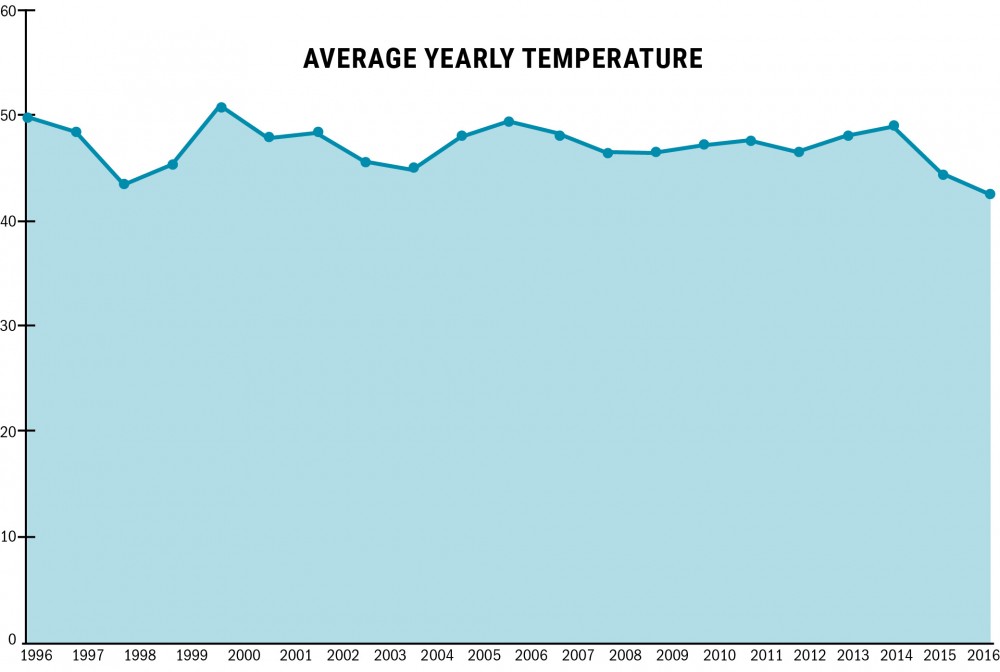Though February has been a record-breaking warm month for Minnesota, experts say the temperatures can’t be solely attributed to climate change.
Minnesota is leading the continental United States in how quickly it’s warming. But experts say warm temperatures this winter can be attributed to a couple main factors.
Historically, there have been random bursts of warm weather during Minnesota winters. But climate change has amplified these occasional spikes, including this year’s, said Kenny Blumenfeld, a Minnesota Department of Natural Resources climatologist.
“There have been previous warm streaks in February but because of a long-term warming trend, this year had a little extra oomph,” Blumenfeld said.
This long-term warming trend has sped up during the past 50 years, which Blumenfeld attributes to greenhouse gases being unable to escape in the atmosphere.
“People my age … are now seeing winters that students at the [University] have grown accustomed to. These really are some of the warmest winters on record,” Blumenfeld said.
This consistent rise in temperature was a contributing factor to the unusually warm February weather.
“We are on this long-term trend, but with respect to that trend, things are abnormally warm right now,” he said.
According to Climate Central, Minnesota winters are warming at 1.24 degrees Fahrenheit per decade — faster than any other state in the continental United States.
Stefan Liess, a professor in the University’s Department of Earth Sciences who studies regional and global climate patterns, said this is because there are no oceans — which control temperature well — to influence the weather in Minnesota.
Liess also attributed the higher warming rate to Arctic air. Because the Arctic Circle is also heating up, the air that normally helps freeze Minnesota is lacking.
“[The] Arctic gets warmer, so Minnesota gets warmer,” Liess said.
During the warmer days these past couple weeks, students were quick to get outside and enjoy the weather.
Brendan Wise, an accounting sophomore, said he enjoyed being able to play ultimate Frisbee and soccer.
“It’s great, it’s fun to be outside,” he said.
Still, the impacts of global warming on vegetation in Minnesota are predicted to be dramatic, Blumenfeld said. This will include the types of crops farmers can grow, he said.
“There will be big effects on [the] natural landscape, and downstream effects on the way we recreate and the resources we have in this state,” he said.
Warming winters also present a problem for students involved in winter sports, said Evelyn Frenz, a first-year student in the Carlson School of Management and a member of the University’s Nordic Ski Team.
“Many races were cancelled because there simply wasn’t enough snow that held up through the warm weather,” she said.








